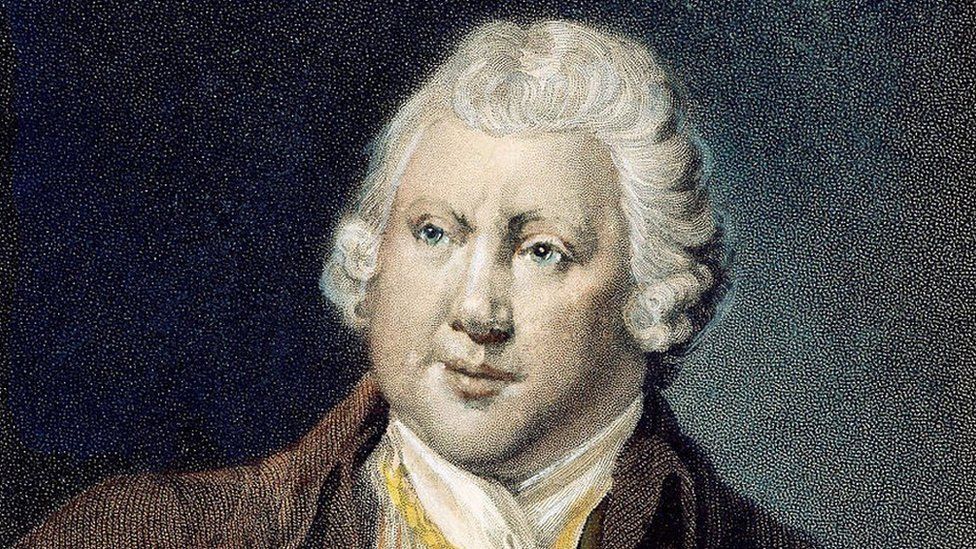Richard Arkwright: Slave trade update to plaque listing welcomed
- Published

Changes to a heritage listing to highlight a Derbyshire industrialist's links to slavery have been welcomed.
Sir Richard Arkwright was an 18th Century inventor and businessman who helped start the modern factory system.
But his blue plaque entry on English Heritage's website now highlights the fact his Derwent Valley mills used cotton supplied by the slave trade.
The Arkwright Society said while this may not be easy for some to read, it was an "important story to tell".
Arkwright was born in 1732 and in 1769 he patented a machine to speed up the processing of cotton.
Quickly dominating the industry, he set up mills in Derbyshire, Nottingham, Staffordshire and Manchester.
The Derwent Valley area in Derbyshire, where several factories were built, is a Unesco World Heritage site.
A house he used in London has a plaque dedicated to him and it is this entry which has been updated.
'Appalling and abhorrent'
An English Heritage spokesman said: "In keeping with the Government's 'retain and explain' policy, these online entries aim to tell more of the story behind the plaque and the person, including any uncomfortable aspects.
"In the case of Arkwright, we highlight the pioneering role that 'the father of the factory system' played in the early Industrial Revolution.
"We also cover the fact that his cotton mills involved harsh working conditions and relied on raw materials produced using enslaved workers in the Americas."
The Arkwright Society's chief executive, Simon Wallwork, said: "I think it is an important story to tell.
"The cotton industry in Britain was historically fed by the slave trade and I think this story is one that needs to be told and needs to be realised and people need to recognise that is part of the story of Britain.
"It is not very palatable and the slave trade was appalling and abhorrent but it is a story that needs telling and we do try to tell it here."
Follow BBC East Midlands on Facebook, on Twitter, or on Instagram. Send your story ideas to eastmidsnews@bbc.co.uk.
Related Topics
- Published27 January 2022
- Published7 January 2022
- Published22 September 2020
- Published16 August 2020